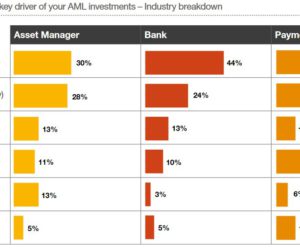By Elizabeth Hearst for AMLi
The UK government’s former counter-fraud Minster, who spectacularly resigned in January over the government’s “woeful” oversight of its COVID bounceback loan scheme, has launched a scathing attack on Starling for its poor performance at preventing COVID fraud.
Lord Agnew blasted online bank Starling and claimed it had “acted against the government and taxpayers’ interests”, adding that it was one of the worst banks for preventing COVID-19 fraud and highlighting suspicious transactions.
Speaking in Westminster Abbey, Lord Agnew said Starling had used the government scheme as a “cost-free marketing exercise”, while it did not take its anti-fraud responsibilities seriously, reports The Times.
“They took this as a god-sent opportunity to swell their balance sheet by a factor of 50 times in barely less than a year with no risk to themselves and 100% risk to the taxpayer,” said Lord Agnew.
He claimed Starling had been “one of the worst” performers on the COVID-19 bounceback loan scheme when it came to assessing turnover claims by borrowers. As part of the scheme, banks provided loans of up to £50,000 underwritten by the taxpayer.
Keen to dispel his comments, Anne Boden, CEO and founder of Starling said she was “shocked” by Lord Agnew’s comments, adding that Starling had been “one of the most active and effective banks fighting fraud.”
“The comments about not checking the turnover of businesses or submitting suspicious activity reports are absolutely and utterly wrong and I must ask him to withdraw the statement,” she added.
Lord Agnew is also due to give evidence against the UK government, in an attempt to force the unveiling of identities of those who benefited from the emergency pandemic measures.
Speaking at a fraud conference earlier this week, Lord Agnew revealed he would be supporting an attempt by a campaign group to highlight COVID-19 beneficiaries.
He accused the government of “ludicrous defensiveness” in its attempts to maintain secrecy in the COVID-19 schemes, adding that there were “spurious reasons” given by officials to prevent full transparency.
Fraud losses from the scheme, which provided 1.6M loans underwritten by the taxpayer, are expected to total £4BN. Lord Agnew blasted the scheme as a “vital intervention at an extraordinary time but [were] dreadfully implemented.”
Calls for full transparency have been sought by Spotlight on Corruption, after the government’s British Business Bank refused to disclose information on beneficiaries. Lord Agnew yesterday revealed he had decided to offer testimony at the tribunal, adding that he had been “reluctant to do so”, but “the clock is ticking”.
British Business Bank has previously claimed the current data protection regulations prevent taxpayers from being informed on who benefited from loans, as it could give rise to “informal, almost vigilante activity.”
In January, Lord Agnew accused the UK Treasury of having “little interest in the consequences of fraud to our society”, adding that “a combination of arrogance, indolence and ignorance” was “freezing the government machine”.
He blasted the government for making “schoolboy errors” after it emerged it had approved COVID-19 loans to 1000 companies who were not trading when the pandemic began.
It was also revealed that the UK Treasury had written off more than £4BN in public cash stolen by fraudsters from Covid support schemes.
Figures released by HM Revenue & Customs show that £5.8BN was stolen from Covid relief supports, including the country’s furlough and self-employment schemes.
The UK government set up a taskforce to return the funds back to the public purse, and is believed to have recovered £500 Million from scammers last year, and aims to recover a further £1BN by 2023.
The Treasury now expects to recover just £1 for every £4 stolen from the Exchequer, meaning just 26% of funds will be recovered, according to the Times of London.








